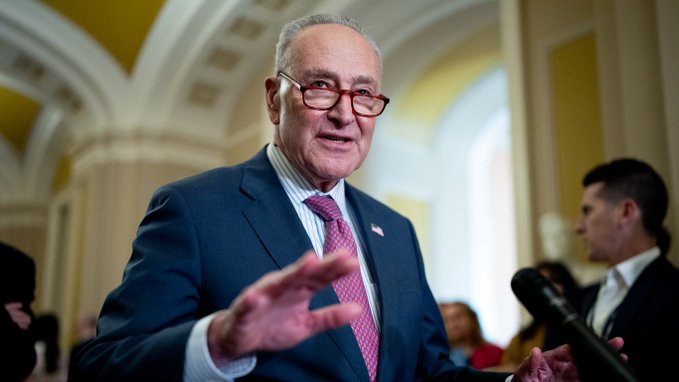- Bipartisan support for the decision indicates a potential shift in the regulation of digital assets.
- Critics argue that the rule hampers innovation and regulated financial institutions’ capacity.
The US Senate voted 60 to 38 to overturn a Securities and Exchange Commission (SEC) rule that previously prohibited regulated financial entities from holding cryptocurrencies like Bitcoin. This resolution, known as H.J. Res. 109, highlights a potential shift in the regulatory framework governing digital assets.
The rule in question, Staff Accounting Bulletin (SAB) No. 121, had mandated that banks holding crypto assets list them as liabilities. Critics, including Michael Saylor, co-founder of MicroStrategy, have argued that this requirement unfairly hindered banks’ ability to offer custodial services for cryptocurrencies.
“Wall Street wants Bitcoin, the House of Representatives wants Bitcoin, and now the Senate wants Bitcoin,” he posted on the X social media network.
Wall Street wants Bitcoin, the House of Representatives wants Bitcoin, and now the Senate wants #Bitcoin. pic.twitter.com/lLqBv2XZJy
— Michael Saylor⚡️ (@saylor) May 16, 2024
“There is no economic rationale for holding capital against assets a firm does not own, and it was clearly done simply to block regulated financial entities from providing custodial services,” he said
The Senate’s decision comes after the House of Representatives also showed support for overturning the rule, with a vote of 228 to 182. This bipartisan approval in both chambers suggests a growing recognition of the need to adapt regulatory approaches to the burgeoning field of digital assets.

Senate Majority Leader Chuck Schumer, alongside several Democrats and the majority of Republicans, supported the repeal. This broad consensus reflects a keen interest in fostering a more accommodating regulatory environment for cryptocurrencies.
BREAKING: The Senate is voting on overturning the SEC’s anti-crypto rule, Staff Accounting Bulletin 121. President Biden has threatened to veto the bill if it passes. WATCH LIVE: https://t.co/tLRaMrV5Ty
— Coinage (@coinage_media) May 16, 2024
Robert Leshner, of Compound Labs, regards this legislative action as just the beginning of a series of favorable developments for the cryptocurrency industry. The Digital Chamber, a major blockchain trade association, expressed its delight over the Senate’s decision, indicating a significant industry milestone.
Austin Campbell, founder of Zero Knowledge Consulting, criticized the SEC’s unilateral implementation of SAB 121. He highlighted that it posed unnecessary burdens on regulated firms, benefiting non-regulated custodians instead.
For all who would say crypto is not bipartisan, we just rolled up 20+ dems in the house and 10+ dems in the Senate, including the majority leader @SenSchumer and several OG privacy and due process advocates like @RonWyden.
This is a American issue, not a partisan one. https://t.co/fkHST0LrDX
— Austin Campbell (@CampbellJAustin) May 16, 2024
Campbell stressed that there was no economic justification for the SEC’s initial stance, which only served to obstruct traditional financial institutions from providing cryptocurrency services.
Looking ahead, the resolution now awaits President Joe Biden’s approval. Despite the overwhelming support from Congress, the White House has hinted at possible concerns. The administration might veto the measure, citing disruptions to the SEC’s efforts in safeguarding investors in the crypto-asset markets.
The industry’s response to the Senate’s vote has been overwhelmingly positive, with many stakeholders viewing it as a crucial step towards integrating cryptocurrencies into mainstream financial services. However, the final outcome depends on the President’s decision, which remains uncertain.
This legislative activity signals a broader acceptance of digital currencies and the need for regulatory frameworks that can keep pace with technological advancements. While the potential for a presidential veto looms, the bipartisan support for the bill underscores a significant shift towards embracing the possibilities that cryptocurrencies offer.



